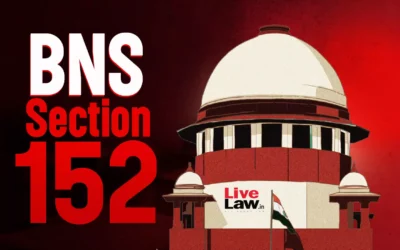BNS Section 14 – Acts Done Under Legal Obligation or Mistake of Fact
Action taken by someone who is legally required to do so, or who wrongly thinks they are legally required to do so
If someone is legally required to do something, or if they mistakenly think they are legally required to do something, that is not an offense.
Some examples
(a) Soldier A fires on a crowd because his higher officer told him to, which is authorized by the law. A has not done anything wrong.
(b) A is a court officer who is told by the court to arrest Y and, after asking around, thinks Z is Y and arrests Z. A has not done anything wrong.
Vinod, who works for the court, was told to arrest Rakesh. Vinod arrests Amit because he thinks he is Rakesh after looking into it. This thing Vinod did wasn’t illegal because the police officer made a mistake while doing what the law required.
Important Things About BNS-14
People who do something because they think they are legally required to can use BNS-14 as a defense. This part tells the difference between mistakes in facts and mistakes in the law.
- Mistake of Law vs. Mistake of Fact: Mistake of Fact: The person honestly thinks they are legally required to act in a certain way, but they are wrong because they don’t understand the facts. In this case, the person is not responsible for breaking the law. Lawyer Mistake: This part doesn’t talk about lawyer mistakes because everyone knows the law.
- Honesty: The person must act in good faith, really thinking that what they are doing is what the law requires. When you act in good faith, you are acting honestly and not with the goal of hurting someone.
- Some examples: (a) A soldier shoots at a crowd because that’s what the law says to do with orders from a higher officer. The soldier doesn’t break the law because he thinks he has to do what he’s told. Example (b): An cop is ordered by the court to arrest a person (Y), but they mistakenly arrest someone else (Z) because they think Z is Y. Because the cop made a mistake of fact and not of law, no crime is done.
- The goal: This part of the law acknowledges that people may sometimes act in good faith when they are under the influence of the law or have a false opinion about the facts. It also makes sure that those people are not unfairly punished for their actions. This part protects people who, because they think they know the facts but don’t, do things they think the law requires them to do.

